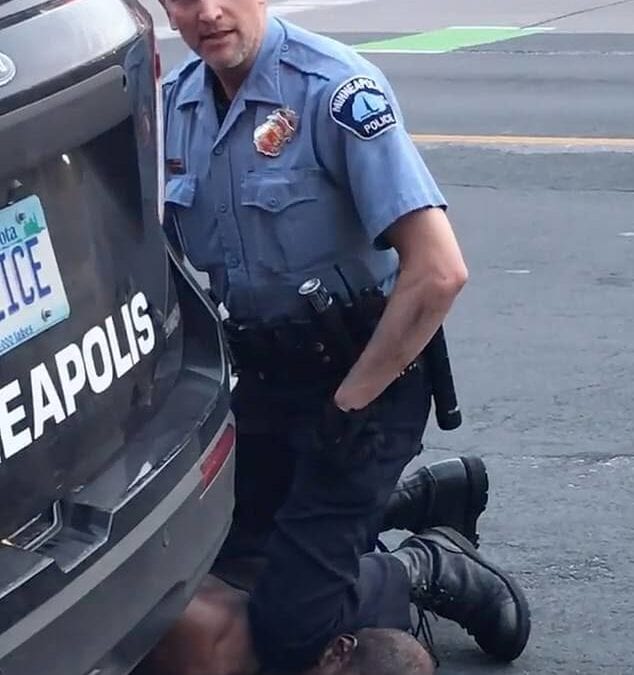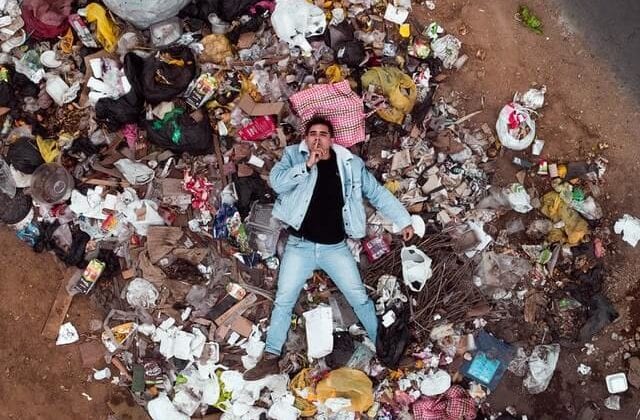On Policing
SIMPLE & QUICK: There may never be a better time to reimagine policing and defund the police
Recent darling and New York Governor Andrew Cuomo said last week during one of his daily Covid-19 briefings, that “unprovoked police brutality just does not happen.” Peaceful protestors in his own state, and those in New Jersey, and people in Pennsylvania, and more in Michigan, and Wisconsin, and Minnesota; and thousands over in California, and thousands more deep down in Texas, and yet even thousands more back across in the Nation’s Capitol, non-violent Americans are saying in unison to Mr. Cuomo that unprovoked police brutality does happen. It happens regularly, and in 2020, Americans are showing Mr. Cuomo that it even happens live in 4K clarity on television.
America is once again confronting her deadly problem and original sin of racism. The reckoning in this iteration is how systemic racism has empowered acts of police brutality for decades. Coupling this with recent trends of budget-prioritization and militarization of police departments, the cancer of racism within American policing has metastasized. This became painfully clear when Minnesota Police officer Derek Chauvin was filmed with other officers pressing their knees and full body weight on an unarmed black man who allegedly attempted to use a counterfeit $20.00. The man died calling out for his mother— who died years prior.
Americans in cities of all sizes implore this very structure exists in their local departments. Perhaps finally with the ever-increasing evidence from cell phone cameras by victims and bystanders, Americans’ collective concern with policing is peaking. Or perhaps its graphic reality can just no longer be whitewashed. The culmination of now two decades of people sharing their recorded experiences with excessive force and police brutality furthered more recently with footage being released from officer body cameras.
In the course of a week, a lot of Americans have gone from, “I’m not racist, my best friend is black,” to “I am so sorry! How can I help?” But is this new ethos real? This is not the first moment America has seen her racist reflection. So, what is the conversation now— and most importantly— is anything really changing this time?
Topping the complaint list is police brutality. Until recently, Americans mostly saw police brutality as a problem for the “perpetrator.” For a long time, many Americans did not see improper police action, but rather proper police response to “criminal” action. This is clearly no longer the case. Whether it is an example of excessive force in small town America, or the deployment of million-dollar assets in a big city, Americans now notice that their police have been given carte blanche to react without restraint.
How America’s policing got to this legal lack of restraint incites an important tangent. America was once a bastion for labor protections. In the heyday of the labor movement, most Americans belonged to a labor union. This became the case for American police as well. However, after decades of republican legislation eating away at labor union power in exchange for higher corporate profits, less employer accountability, and ultimately better shareholder earnings, most American labor unions are today bark without bite— except for police unions.
Police unions in America are perhaps at their peak. Bad cops have been successfully protected for decades by their unions. Because of police labor unions and their D.C. lobbyists— police aggression, targeting, profiling, evidence staging, evidence tampering, assault, violence, and recorded murder in broad daylight have all found protection under “qualified immunity.” This immunity from criminal charges for officers has been a get-out-of-jail-free card used for bad behavior by corrupt police and the leadership empowering this cycle. This is also referred to as “The Blue Wall of Silence.” This wall protects individual bad cops and is now on full display attempting to protect a bad national police culture.
Data that shows crucial information such as “how many times an officer brandishes a gun,” or “are racially charged words used in incidents,” or “why was the body camera off” is data that is not collected and shared nationally. This is not because collecting such information was not thought of until now, it is that this information is being vehemently protected and withheld (if not outright destroyed) as means to protect the corrupt within the American policing system.
The list of unnecessary aggression and violent deaths of American citizens at the hands of their police is as long as the centuries of complaints from which the racist core of America’s racist society began. What is now up front and in the open are dozens of undeniable videos proving police brutality and the blatant use of excessive force. The videos display malicious— yet protected— practices. Police unions have protected bad police, bad police departments, and have systematically upheld the racist ideology that helped bring Americans to yet another racist reckoning.
In one week, the Governor of New York went from claiming that “unprovoked police violence just does not happen,” to “You see that video and it disturbs your basic sense in humanity. But why? Why was that necessary? Where was the threat? . . . Mr. Fllyod’s death was a breaking point. It was a breaking point in a long list of deaths that were unnecessary and which were abusive. That is a fact.” His State is now passing significant police reform.
Yes, the conversation has reignited. And, yes, this is despite the first recorded police beating being shared with America in 1992. The current moment has been actively seized by those demanding change and changes are now being made in real time. Police departments with racist and violent histories are being disbanded, questionable no-knock warrants are becoming illegal, negotiations with police unions are being halted, new practices including data collection and a national “bad cop” registry are being initiated, and departments are implementing enforced “see something, say something” protocols regarding fellow officer behavior.
The conversation will unveil many questions. Is there a way to first relay live situations so maybe police are not primary responders? Should there be a para-police force that acts as unarmed social workers? Police have complained for decades that they are asked to wear too many hats. And it is true. Perhaps now is the time to find the right people and match them with the right hats.
Communities of all sizes across America are taking police reform into their own hands. Today, a police chief of a major city is stepping down— not in protest against how police are mistreated by politicians and certain citizens— but as a means to place the cornerstone in building a new trust between her community and their police. Congress has also taken note and is working on sweeping legislation.
Even the President of The United States is being thoughtful enough to change the date of his first amid-Covid-19 campaign rally. The kick-off to 2020 Trump rallies will no longer be purposely held on 19-June, the day of Juneteenth celebrations (which are cancelled due to the pandemic), but rather, it will be the following day, 20-June, still in Tulsa, OK— 99-years after one of America’s worst moments in domestic terrorism. Then again, perhaps the grotesque irony of the President again missing the moment will show itself in Jacksonville.
Regardless, policing in America is evolving.





